The firearms industry has experienced unprecedented growth recently, with as many as fifteen million new gun owners in the last three years alone. However, being a responsible, well-trained gun owner is about so much more than simply choosing a firearm. Training and being fluent with your new tool is an extremely important part of responsible ownership and a large part of that training will take place on shooting ranges.
Going to a shooting range for the first time can be an intimidating experience, and training with a professional instructor is always recommended, that being said, having proper accessories for the shooting range will increase safety, save money, and improve the overall experience. What are the proper shooting range essentials? When it comes to shooting range essentials, the options available may seem overwhelming to a beginner, however, the following list has been compiled to simplify the path to becoming a responsible proficient marksman.

Hearing Protection: A Shooter’s First Priority
In any experienced gun owner’s list of shooting range gear, other than firearms, the most prominent item will be hearing protection. Many instructors carry a variety of different types to accommodate different needs and skill levels. It has been said that you can never have too much ammunition, this sentiment applies to hearing protection as well. Axil provides excellent quality combined with a diverse selection of different muffs and plugs for different environments and needs.
Trackr ELec- Axil Trackr series are great multipurpose electronic ear muffs that really shine when used outdoors for long gun training or optics adjustments due to the ergonomic design and durability to moisture and the elements. Also, Trackr ear muffs are very easy to put on and take off making them intuitive for new shooters.GSX2.0
- For larger calibers combine the Trackr muffs with Axil foam earplugs. Optics adjustment (zeroing a scope) can be convenient on an indoor range (no rain, snow, freezing, or extremely hot weather), however, the noise levels are amplified, especially with a large caliber long gun, and foam earplugs can provide an additional level of protection.
- The Axil GS Extreme 2.0 is great for moving, shooting and communicating, making it ideal for active training with a partner or team, for example, USPSA, or IDPA. Also, close quarter-battle (CQB) training in an enclosed environment where spatial awareness can be critical.
In any case, hearing protection is essential and even required at training facilities and shooting ranges nationwide making them standard and necessary equipment for all gun owners.

Eye Protection: Shielding Your Vision
Having eye protection is just as important but a much simpler requirement to meet. Shooting glasses vary from extremely basic shatter-proof plastic to more advanced anti-reflective and UV protection-enhanced lenses. Still essential for range gear, the goal is to protect the eyes from brass casings ejecting from the firearm while shooting making good close fit crucial, as well as potential ricochets, especially when training with steel targets. Shooting steel gives off a noise that lets the shooter know that they scored a hit without visual confirmation, however, deformities in the metal can cause a bullet projectile to break up and send small pieces back towards the shooter or anyone watching. This is why a good pair of eye protection should be carried by anyone who trains with firearms. Most prescription lenses are effective at providing protection as well.

Range Bags: Organizing Your Gear
The universally recognized sign of an experienced shooter is a quality range bag. Range bags vary greatly in size and options with many gun owners opting to use just a simple duffle bag. However, there are companies that make shooting range equipment including range bags specifically geared to the firearms market. With special compartments and extra security from zippers and lock-accommodating pouches and cases, range bags not only help with transport and security but also very much with the organization. For training and field purposes, a quality range bag is absolutely essential equipment.
 Ammunition: Choosing the Right Rounds
Ammunition: Choosing the Right Rounds
Choosing ammunition can be very complicated for new gun owners, however, it doesn’t have to be. Most manufacturers will make specific recommendations on the type of ammo to use and by law, the caliber (size of bullet) is onto the barrel of the firearm. Most instructors will recommend only high-quality brass factory ammunition. As far as shooting range supplies, a common question is “how much ammo.”
For shorter training sessions with handguns, a hundred to two hundred rounds of ammo is typical (handgun ammo is generally sold in boxes of fifty.). Long guns vary greatly, and adjusting an optic for long-distance hunting can take as little as one box of ammo versus tactical-type training which can require several thirty-round magazines. When choosing gun range accessories most professionals in the industry recommend avoiding low-cost low-quality items, this applies to ammunition as well. Avoid steel-cased ammo if possible as it can be very hard on your barrel and prohibited at most indoor ranges. Also, avoid reloads and look for new factory ammo, as reloaded rounds can be damaging to your gun and even dangerous if not made correctly. Most gun stores have a great stock of factory ammo with helpful employees and instructors, that would be a great place to start. However, there are several online sources as well.
 Targets and Target Holders: Perfecting Your Aim
Targets and Target Holders: Perfecting Your Aim
Simple paper or cardboard targets are the preferred type for beginner shooting practice due to availability and low cost. However, as mentioned earlier, steel targets have great appeal when looking for more challenging courses. A common, humorous phrase heard in the industry when choosing targets is “bullseyes or bad guys” which simply translates to shooting for sport and accuracy or for defense. The difference is full silhouettes that resemble hostile humans, or smaller crosshair targets. Reactive targets have become more common, meaning targets that “splash” and indicate a hit from a distance. For example, an all-black colored target that turns bright green when hit.
Indoor ranges will generally provide some type of pulley system with target holders being attached to an adjustable hanger of some type. Shooters also use tape or staples to attach targets to the hanger. However, when training outdoors, target holders that stand on their own are essential. There are a wide variety of targets for various types of shooting practice, it is probably best to start with simple bullseye targets and to move up from there into more elaborate targets as mentioned above.
 Cleaning Kits: Maintaining Your Firearm
Cleaning Kits: Maintaining Your Firearm
Cleaning and maintenance an underrated aspects of firearms ownership and should be stressed to beginner owners. A quality cleaning kit is essential for proper firearm maintenance. Cleaning kits should include all the tools, solvents, and lubrication required for gun care. Failure to clean a firearm regularly after use multiplies the time required for cleaning. What that means is that the longer the cleaning is put off and usage continues, the longer and harder the cleaning is eventually going to be.
Whereas a gunshot for a few hundred rounds on the range taken home and cleaned immediately will take roughly ten minutes, a gun not immediately cleaned and repeatedly shot at the range can potentially take hours. Also, not properly cleaning a firearm prematurely ages the components that make up the firearm, meaning parts will need to be replaced much sooner and with much less usage than a firearm that is maintained, cleaned, and lubricated. This can be easily avoided with readily available low-cost cleaning supplies.
 First Aid Kit: Safety First at the Range
First Aid Kit: Safety First at the Range
Even with good shooting range safety protocols and training, accidents happen. Firearms can be very dangerous tools and having a first aid kit as part of your essential range equipment should never be overlooked. Individual first aid kits (IFAK) are great for emergency preparedness and are an essential component carried by many gun owners and instructors. Simple IFAKs usually have gauze and other items for stopping the bleeding, but there are elaborate kits as well that include trauma shears and skin glue. An IFAK can be worn on a belt, or tactical vest, or stored easily in a range bag.
Conclusion: Equipping Yourself for the Range
Shooting range preparation should begin, whenever possible, well before you get to the range. Having essential gear will enhance your training, save you money, and maximize your experience. There is a huge selection available, however, so researching and asking questions can help to ensure quality equipment. Companies like Axil that have decades of experience making high-end, advanced equipment geared towards hunters and gun owners are a great place to start. Axil’s hearing protection has been tested and proven in the field and provides excellent protection as well as hearing enhancement. Finding gear and equipment that fulfills multiple needs isn’t always simple, which is why many Axil products are ideal. Please check out the different options available.




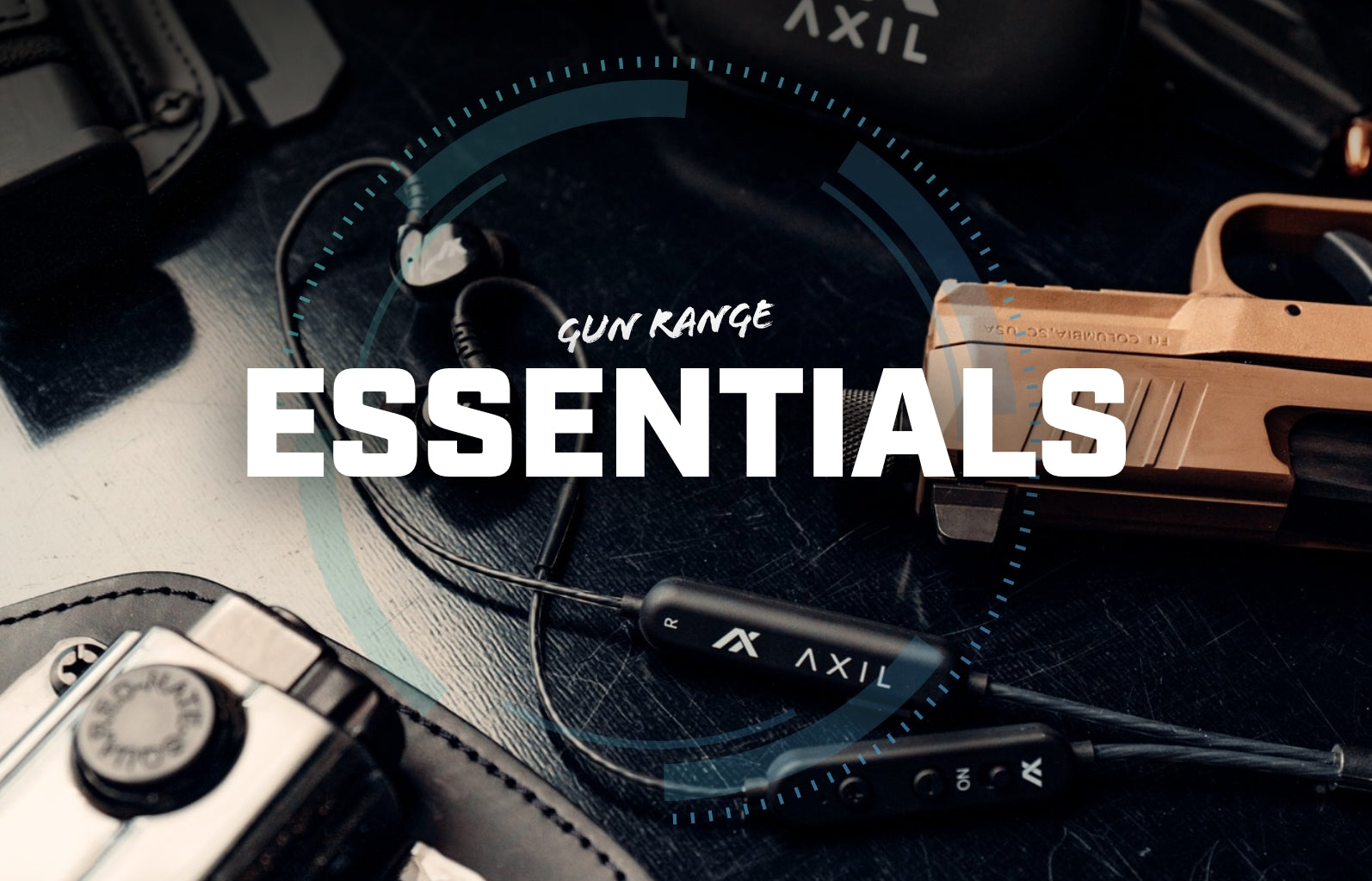
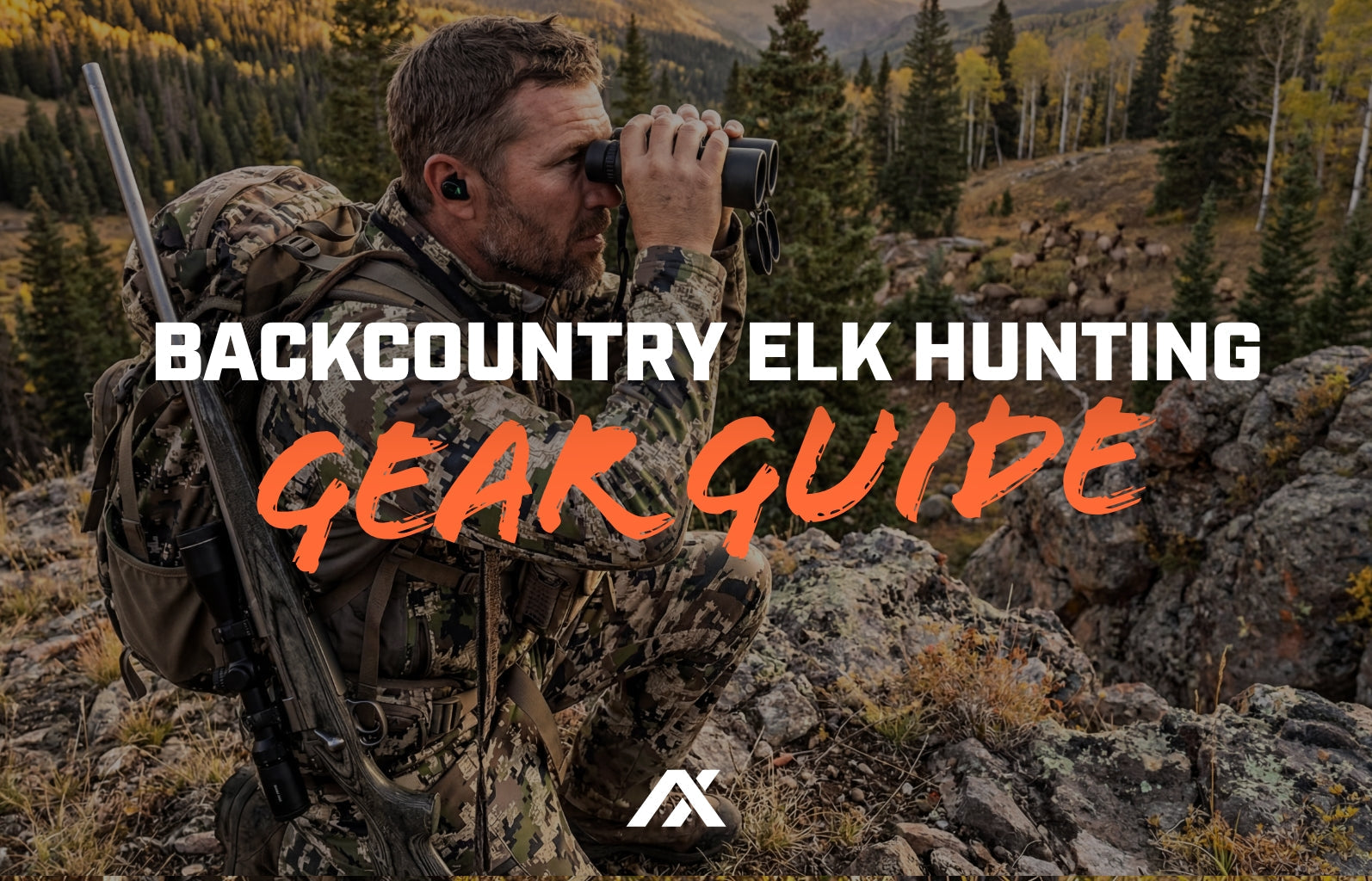
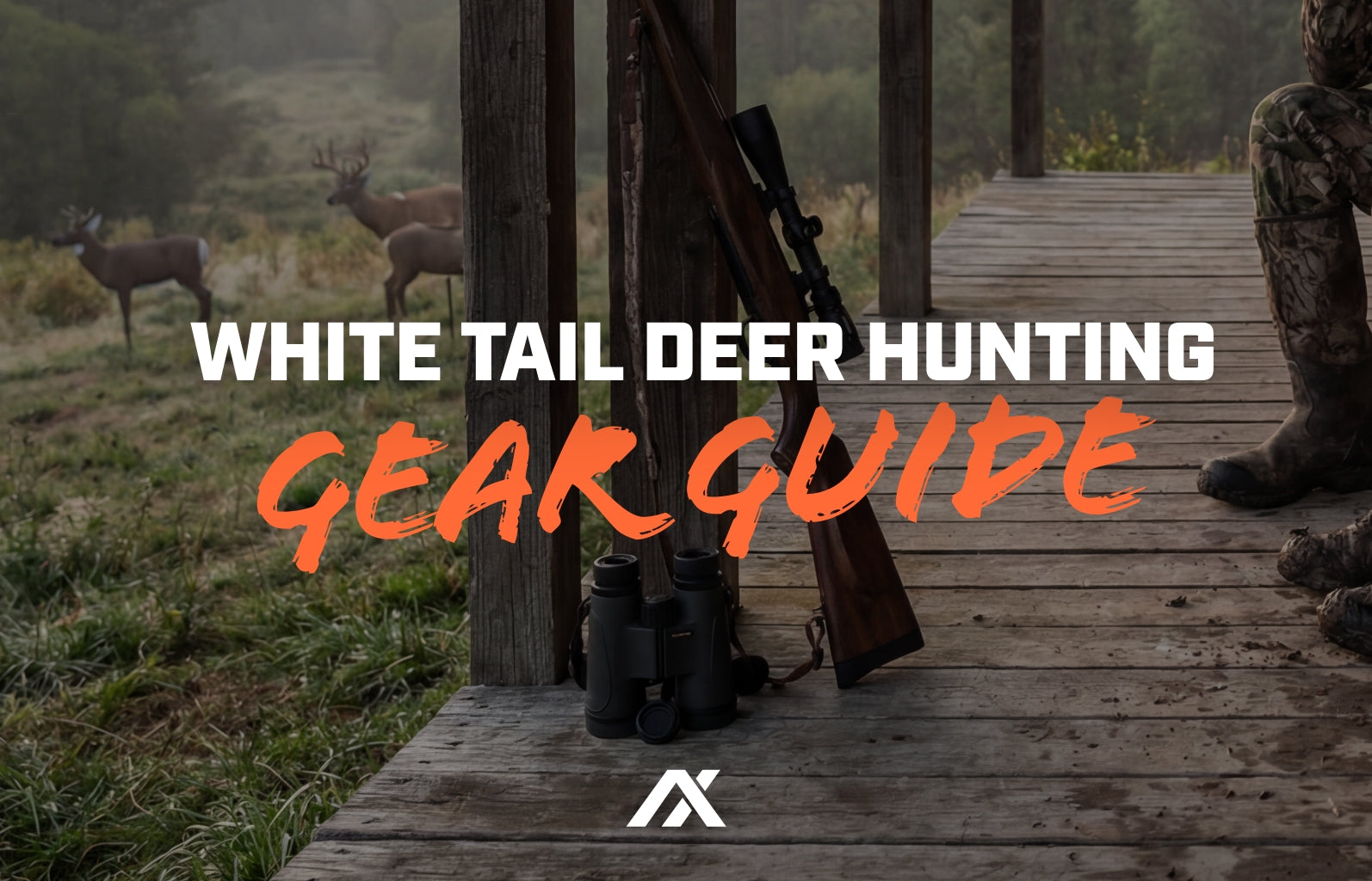
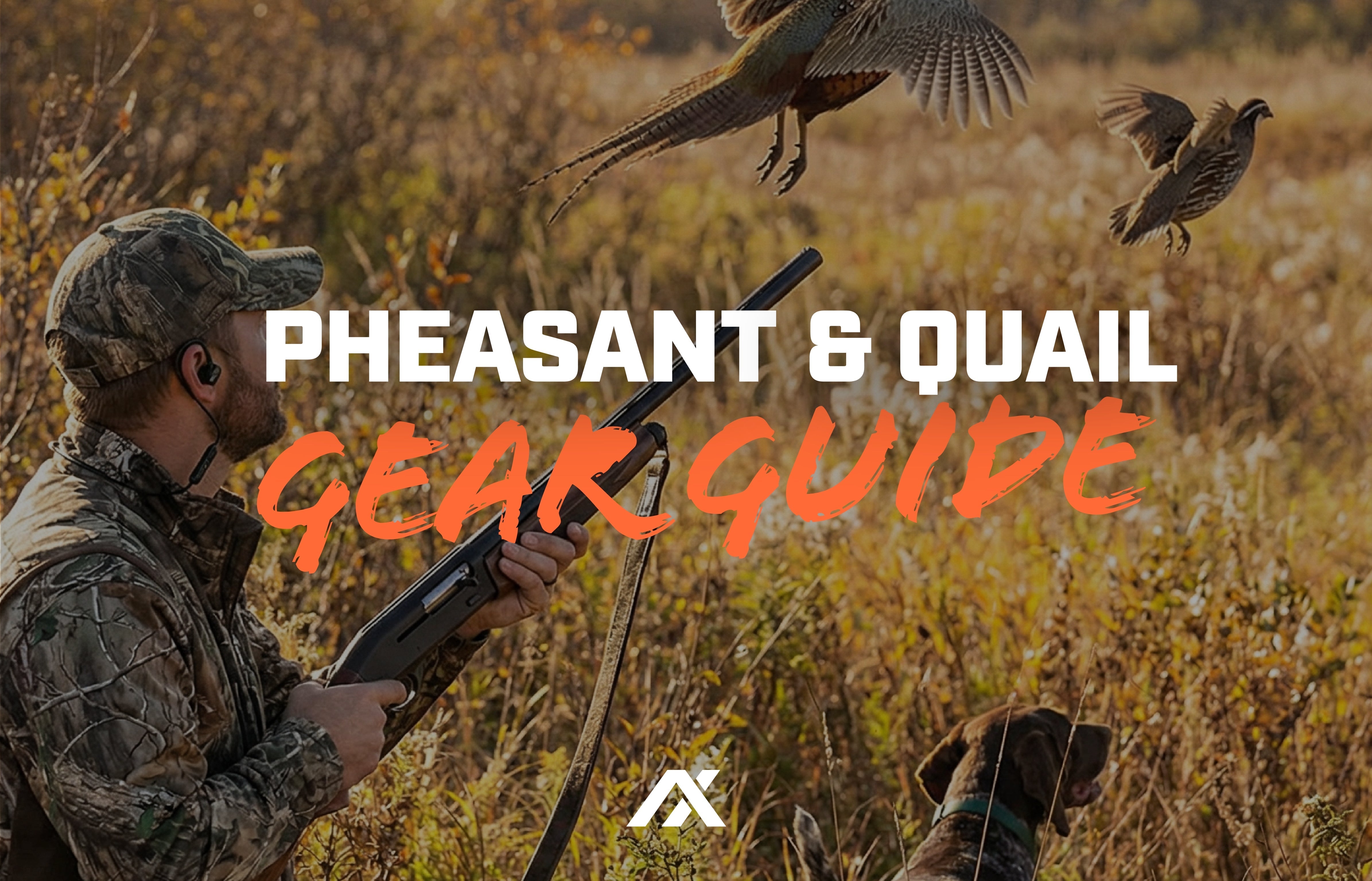
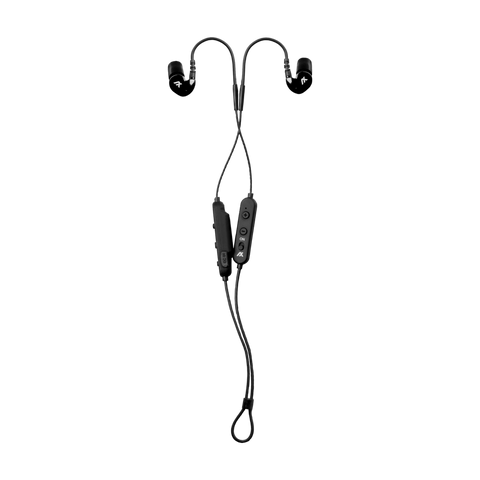

Share:
Shooter’s Ear: Protecting Your Hearing from Gunshot Noise
Best Hunting Earmuffs: Combining Safety with Performance